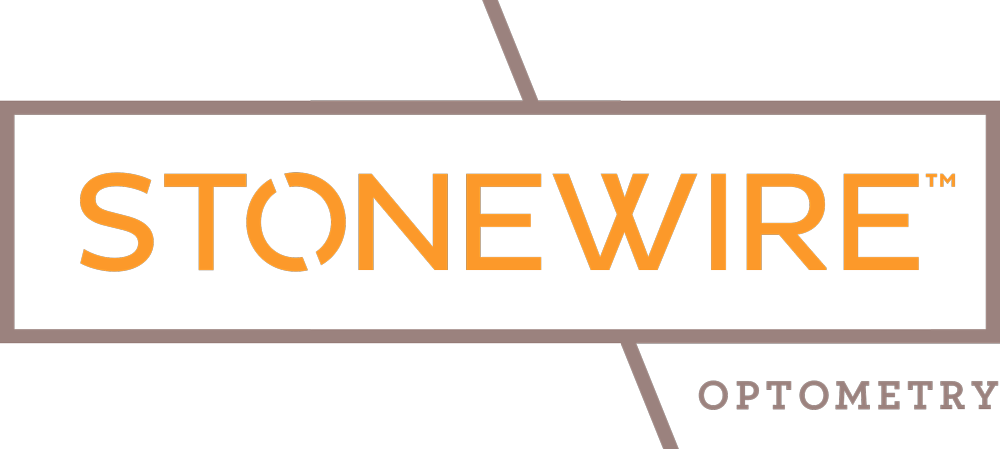The Link Between Eye Health and Your Diet
/Have you ever wondered if the food on your plate could affect how well you see? Most people focus on nutrition for weight management, heart health, or energy levels, but what you eat also plays a significant role in protecting your vision. The right vitamins and nutrients can help keep your eyes healthy, sharp, and resilient against age-related changes. At Stonewire Optometry in Kingsway Mall, great vision starts with great habits, including your diet. Read on to discover which foods can support your eye health and which ones might be doing more harm than good.
Essential Vitamins & Nutrients for Eye Health
Eating the right foods can reduce the risk of eye diseases and help maintain sharp vision. Here are some of the most important vitamins and nutrients your eyes need:
Vitamin A
Vitamin A is crucial for retinal health and plays a key role in helping the eyes adjust to light changes. Foods rich in Vitamin A include:
Carrots
Sweet potatoes
Dark leafy greens (kale, spinach, broccoli)
Vitamin C
As a powerful antioxidant, Vitamin C protects the eyes from oxidative damage and helps maintain healthy blood vessels. You can find Vitamin C in:
Citrus fruits (oranges, lemons, grapefruits)
Strawberries
Bell peppers
Vitamin E
Vitamin E helps protect against age-related eye damage and supports overall vision health. Great sources include:
Nuts and seeds (almonds, sunflower seeds)
Leafy greens
Avocados
Lutein & Zeaxanthin
These antioxidants help filter blue light and protect the eyes from macular degeneration. Foods high in lutein & zeaxanthin include:
Kale and spinach
Corn and peppers
Egg yolks
Omega-3 Fatty Acids
Omega-3s help reduce the risk of dry eyes and cataracts by supporting the health of your tear film and retina. You can find them in:
Fatty fish (salmon, tuna, sardines)
Flaxseeds and chia seeds
Walnuts
Grass-fed beef
How Diet Affects Long-Term Eye Health
Your diet doesn’t just affect how you feel today—it can also impact your long-term eye health. Research has linked poor nutrition to a higher risk of conditions such as age-related macular degeneration (AMD) and diabetic retinopathy.
One study found that a high glycemic diet (refined carbs like white bread, pasta, and sugary foods) may increase the risk of AMD and vision loss. Similarly, diets high in processed foods and animal fats have been linked to a greater chance of developing diabetic eye disease.
Low-Carb vs. Low-Glycemic Diets: Which is Better for Eye Health?
While low-carb and low-glycemic diets both focus on controlling sugar intake, they aren’t the same.
Low-carb diets restrict all carbohydrates, which can lead to lower energy levels.
Low-glycemic diets focus on choosing the right carbs, such as whole grains, legumes, and fiber-rich vegetables, which help stabilize blood sugar levels and reduce oxidative stress on the eyes.
For those at risk of diabetic retinopathy or AMD, following a low-glycemic diet may help slow disease progression and protect vision.
Other Healthy Eating Habits for Better Vision
Beyond adding nutrient-rich foods to your diet, consider these eye-friendly habits:
✔ Choose lean proteins like chicken, fish, and legumes instead of red meat, which may increase AMD risk.
✔ Limit sodium intake to help prevent cataract formation.
✔ Eat a variety of colourful fruits and vegetables, as they contain antioxidants that reduce oxidative stress in the eyes.
Nutrition Matters, But So Do Regular Eye Exams
Eating well is an excellent way to support your eye health, but it’s no substitute for regular eye exams. At Stonewire Optometry in Kingsway Mall, we provide comprehensive eye care, helping you stay proactive about your vision and overall eye health.
📅 Schedule your eye exam today and take control of your vision!
Disclaimer: The content provided in this blog post by Stonewire Optometry eye care clinic in Edmonton’s Kingsway Mall, and is intended solely for informational purposes and does not replace professional medical advice, diagnosis, or treatment by a Licensed Optometrist. No doctor/patient relationship is established through the use of this blog. The information and resources presented are not meant to endorse or recommend any particular medical treatment or guarantee and outcome. Readers must consult with their own healthcare provider regarding their health concerns. Stonewire Optometry and its optometrists do not assume any liability for the information contained herein nor for any errors or omissions. Use of the blog's content is at the user's own risk, and users are encouraged to make informed decisions about their health care based on consultations with qualified professionals.





